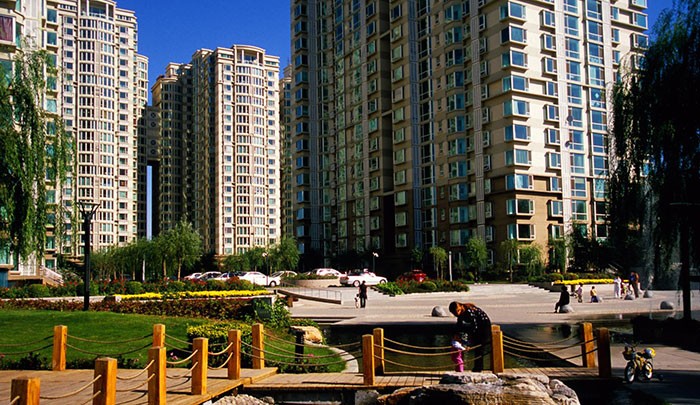Media Report

- TIME reports: "From Rancho Santa Fe, Dream House and Chateau Regalia to Palm Beach Villa, Buckingham Villa and Rits Garden...China has embraced the gated community as a respite from urban-jungle existence. But a new central-government directive is prying open the gates to allow the masses into the manicured confines of Chinese residential enclaves. The new urban-development regulation declares that internal roads in private housing estates should 'gradually open up' to the public in order to ease traffic congestion. In addition, no new gated communities can be built in the future. The rules, which include a ban on 'bizarre' or 'odd-shaped' architecture as well, are the product of the country's first Central Urban Work Conference in nearly four decades."
- The Wall Street Journal reports: "Fresh satellite imagery suggests that China has been building radar facilities on some of the artificial islands it built in the South China Sea, in a move that would improve its military power in the region, a U.S.-based think tank said Tuesday. The report by the Center for Strategic and International Studies on the radar installations in the Spratly Islands comes days after U.S. and Taiwanese officials said Beijing had placed surface-to-air missiles on the Paracels chain, north of the Spratlys....The report also coincided with the start of Chinese Foreign Minister Wang Yi's three-day visit to the U.S., where he is expected to discuss the South China Sea disputes and North Korea's nuclear program, among other issues."
- The Washington Post reports: "The next big smartphone might be from little-known Chinese brands such as TCL and OPPO. Along with other Chinese phone makers such as Huawei and Xiaomi, Chinese brands have surpassed Samsung in China and are encroaching on Apple's turf. In the coming years, analysts forecast that these cheap Android phones with not-so-cheap features will likely attract more budget-conscious customers in Europe and even in Samsung's and Apple's home markets, South Korea and the United States."
Calendar
- 2016-02-22 Beijing to Raise Threshold on Red Alerts for Smog
- 2016-02-21 China's Debt Seen Rising Through 2019, Peaking at 283% of GDP
- 2016-02-19 China accuses US of militarizing South China Sea
- 2016-02-18 Apple Pay Launches in China Where e-Payments Widely Used
- 2016-02-17 China: Missiles have been on South China Sea island for years
- 2016-02-16 South China Sea takes center stage at U.S.-ASEAN summit
- 2016-02-15 Chinese premier says economy faces great challenges, new uncertainties
- 2016-02-14 China's bank chief defends currency regime as markets poised for another volatile week
- 2016-02-12 UK: Hong Kong bookseller ‘removed’ in breach of China treaty
- 2016-02-11 China warns on South China Sea as U.S., India consider patrols
News
- The Wall Street Journal China Appears to Have Built Radar Gear on Disputed South China Sea Islands
- TIME Gate-Crash! China's New Housing Rules Irk the Gilded Classes
- The Washington Post Hottest phones you've never heard of — same bang, less buck
- The New York Times China Maintains Respect, and a Museum, for a U.S. General
- The Washington Post Report cites new China radars in disputed Spratly Islands
- The Wall Street Journal Chinese Firm Ends Investment in Western Digital, Complicating SanDisk Tie-Up
- CNBC Capital controls in China a possibility: Expert
- The Guardian China could win World Cup within 10 years, says Sven-Göran Eriksson
- The New York Times Possible Radar Suggests China Wants 'Effective Control' in Disputed Sea
- Bloomberg Businessweek The South China Tiger is Functionally Extinct. This Banker has 19 of Them
- The Wall Street Journal Stocks Gain on Rising Commodities Prices
- The Washington Post The country with the worst air pollution is not the one you're thinking of
Commentary
- The New York Times: Sinosphere Theft of Guide Dog Underlines China's Spotty Disability Record
- The Diplomat China's South China Sea Missile Deployment: Why Americans Object
- The Wall Street Journal: Money Beat China Deal Party Isn't Over For U.S. Banks
- The National Interest Will Philippine Elections Bring About a New China Policy?
- The Diplomat Chinese Warships Visit Thailand, Cambodia on Goodwill Tour
- Forbes Chinese Missiles In The South China Sea: Don't Waste The Opportunity
